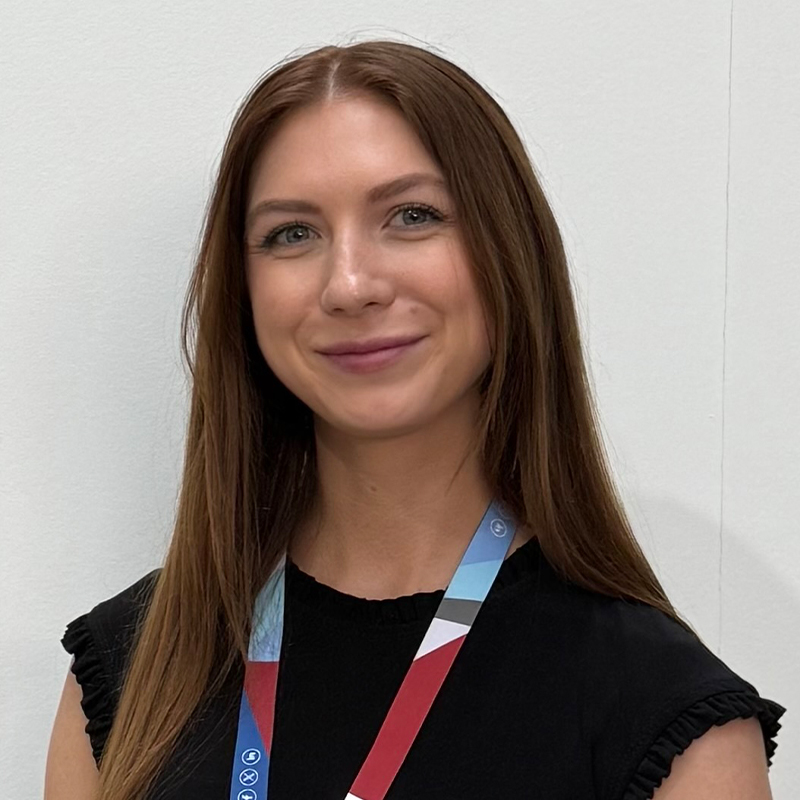Major: Biochemistry and Molecular Biology
What is your current position/career?
I am a PhD student at King’s College London in the Centre for Pharmaceutical Medicine Research. My research is interdisciplinary and involves identifying novel drug interactions between pharmaceutical medicines and illicit drugs and designing effective harm-reduction strategies to improve the healthcare for people who use drugs.
How did Cal Lutheran and/or your biochemistry and molecular biology program set you up for success in this position/career?
I greatly value the education I received at Cal Lutheran and how it prepared me to be successful after graduating. The courses in my program provided me with foundational knowledge and the labs gave me practical, hands-on experience to apply that knowledge from the classroom. I was challenged to think critically and push my understanding in a supportive and encouraging environment. Cal Lutheran made me more confident in my abilities as a scientist, and with letters of recommendation from two of my professors I applied to grad school and I am now doing a PhD at King’s College London, one of the top-ranked universities in the world.
What skills or proficiencies did you acquire at Cal Lutheran, through your studies or other activities that you now use in your current position/career?
Above all, Cal Lutheran taught me how to be a good scientist. I continuously call upon many of the skills that I learned in my program and use them during my PhD. These include different lab techniques and instruments, like PCR and DNA gel electrophoresis which I use as part of a genotyping protocol or using high performance liquid chromatography (HPLC) to separate and characterize compounds. I also learned how to keep a detailed lab notebook, something that is not only good lab practice but crucial for managing records and observations when running experiments that last many weeks.
Another important skill that was acquired at Cal Lutheran, one that is often overlooked in the field of science, was writing. From writing up biology lab reports to organic chemistry protocols to a grant proposal for Capstone Seminar, I was challenged to improve my writing to clearly communicate my research to others. When I had to write a literature review at the start of my PhD, I actually referred back to the handouts and notes I took during my Capstone Seminar on how to structure an effective literature review. I have since written conference abstracts that were accepted as posters and presentations at international conferences and published multiple scientific articles in peer-reviewed journals because I was able to strengthen my scientific writing from early on in my academic career at Cal Lutheran.
In general, what were some of your favorite aspects of the biochemistry and molecular biology program? Such as research, classes, professors, etc.
The thing that I loved the most about the Biochemistry and Molecular Biology program at Cal Lutheran were the class sizes. The small class sizes helped to foster a sense of community with my peers as we went through the program together and a deeper level of support from the faculty that would not be possible at larger universities. In general, you will have the same people in your classes, especially once you get into your upper division classes specific to your major, and I was a part of study groups with many of the same people across classes.
However, there were still opportunities to meet peers in other majors, such as biology and chemistry, who took the same general science classes. That’s how I met my two best friends! The professors were also a huge reason for why I liked my program. Even though the classes were challenging and academically rigorous, the lectures were engaging and the professors strived to make complex topics understandable. You were encouraged to ask questions during class, but I also took advantage of office hours to get additional help with assignments or clarification if I was struggling with a specific concept for an exam, and my professors were always so willing to help. You could tell that the professors care about you, not only as a student but also as a person.
What extracurriculars, clubs, or jobs were you involved with at Cal Lutheran? How did do these experiences prepare you for your future career?
I was involved in the TriBeta Biology club and ACS Chemistry club at Cal Lutheran and I was also a peer tutor for ALLIES in STEM. My role as a peer tutor taught me how to connect with students with different learning styles and effectively communicate scientific concepts, skills I continue to use as a graduate teaching assistant in my PhD and as a supervisor to undergraduate and postgraduate students during their research projects.
